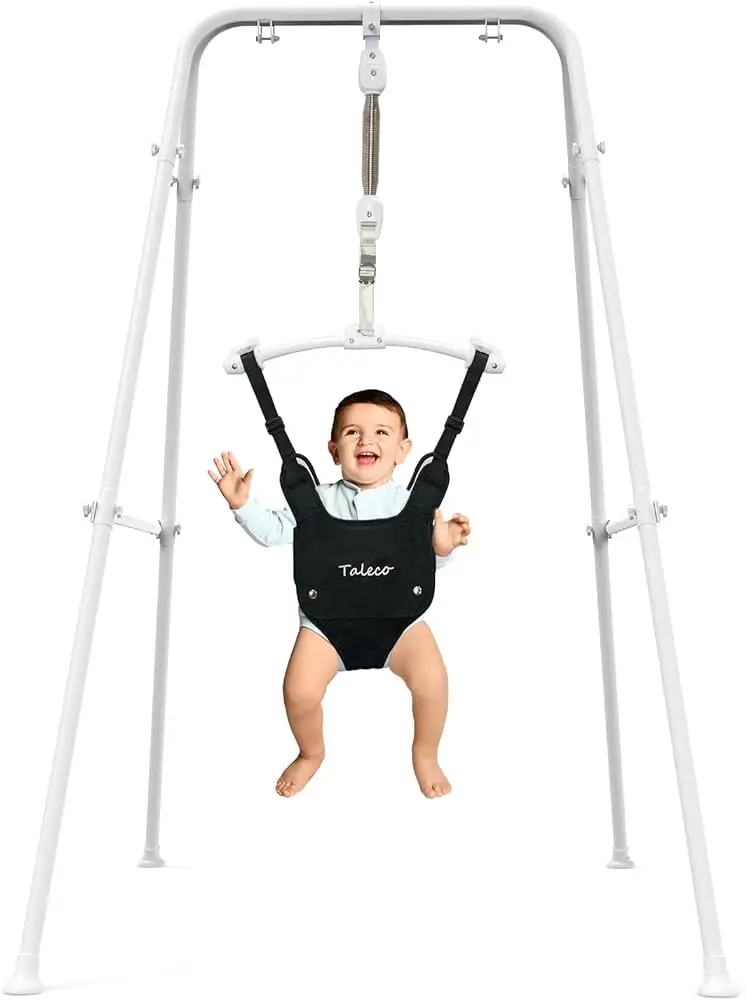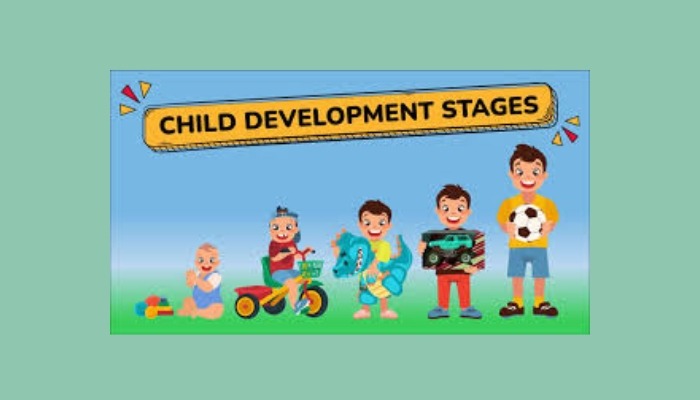How to Choose the Right Sports for My Child? Your Guide to Nurturing Their Athletic Talent
( If you purchase through our sponsored links, we may receive a small commission at no extra cost to you )
To choose the right sports for your child, consider their interests, physical abilities, and developmental stage. Now let’s explore the factors to help you make the best decision for your child’s sports engagement.
Sports play a vital role in a child’s physical, mental, and social development. However, selecting the right sport can be a daunting task for parents. It’s crucial to consider your child’s interests and natural abilities before enrolling them in any sports program.
By doing so, you can ensure that they enjoy the activity and excel in it. Additionally, considering their developmental stage will help you choose a sport that aligns with their physical capabilities. With the right guidance and support, your child can benefit immensely from participating in sports and lead a healthy and active lifestyle. So, let’s dive into the essential factors to consider when choosing the right sports for your child.

Credit: www.amazon.com
Factors To Consider
Choosing the right sports for your child involves several factors to consider. From their interests and physical abilities to the availability of coaching and facilities, it’s important to assess various elements to make an informed decision.
Factors to Consider When it comes to choosing the right sport for your child, there are several important factors to consider. The decision shouldn’t be made lightly, as it can have a significant impact on their physical and emotional development. By taking into account their physical abilities, interest and passion, and long-term commitment, you can make an informed choice that will benefit your child both now and in the future.Physical Abilities
One of the key factors to consider when choosing a sport for your child is their physical abilities. Every child is unique, and their physical capabilities will vary. It’s important to assess their strength, endurance, flexibility, and coordination before making a decision. By understanding their physical limitations and strengths, you can help them choose a sport that aligns with their capabilities. For example, if your child has exceptional hand-eye coordination, they may excel in sports like basketball or tennis. On the other hand, if they have great speed and agility, running or soccer might be a better fit. Understanding their physical abilities will ensure that they can participate fully and enjoy the sport they choose.Interest And Passion
Another crucial factor to consider is your child’s interest and passion for a particular sport. It’s important to involve them in the decision-making process and listen to their preferences. Take the time to explore different sports with them and observe which ones they show the most enthusiasm for. Pay attention to their natural inclinations and talents. Do they enjoy team sports or prefer individual pursuits? Are they more interested in outdoor activities or indoor sports? By understanding their interests and passions, you can help them choose a sport they genuinely enjoy. A sport that they are passionate about will not only motivate them to participate actively but will also provide a sense of fulfillment and achievement.Long-term Commitment
Long-term commitment is another vital factor to consider when choosing a sport for your child. Some sports require extensive training and dedication, while others may be more casual or recreational. It’s important to evaluate your child’s willingness to commit to the sport on a long-term basis. Consider the time and financial investment required. Some sports demand regular practice sessions, coaching, and competitions, which may impact other areas of their life, such as academics or socializing. Discuss the commitment required with your child, ensuring they understand the level of dedication needed. Choosing a sport that aligns with their commitment level will ensure a positive experience and potential for growth. In conclusion, when it comes to choosing the right sport for your child, understanding their physical abilities, interests, and long-term commitment is crucial. By considering these factors, you can make an informed decision that will support their overall development and enjoyment. Remember to involve your child in the decision-making process and encourage them to pursue a sport they are passionate about. By doing so, you can set them on a path towards a rewarding and fulfilling athletic journey.
Credit: www.facebook.com
Popular Sports For Kids
When it comes to choosing the right sport for your child, there are plenty of options to consider. Engaging your child in sports not only promotes physical fitness but also teaches them important life skills such as teamwork, discipline, and perseverance. In this blog post, we will explore some popular sports for kids that you can consider for your little ones.
Team Sports
Team sports play a crucial role in helping children develop their social skills and learn how to work together towards a common goal. These sports require cooperation, communication, and coordination among team members. Here are some popular team sports for kids:
| Sport | Description |
|---|---|
| Football | With its high-energy gameplay and focus on both offense and defense, football is a great team sport for kids to get involved in. It builds endurance, agility, and strategic thinking. |
| Basketball | Playing basketball helps children enhance their motor skills, balance, and hand-eye coordination. It also promotes quick decision-making and enhances their ability to think on their feet. |
| Soccer | Soccer is a globally popular team sport that improves children’s cardiovascular health, stamina, and overall physical fitness. It also fosters essential skills like ball control and teamwork. |
Individual Sports
While team sports have their advantages, individual sports provide opportunities for kids to focus on personal development and self-improvement. These sports allow children to set goals, track their progress, and build confidence. Here are some popular individual sports for kids:
- Tennis: Tennis is a great individual sport that improves endurance, hand-eye coordination, and agility. It teaches children patience, strategic thinking, and the importance of self-discipline.
- Gymnastics: Gymnastics is a challenging sport that develops strength, flexibility, and balance. It also enhances body awareness and instills discipline in young athletes.
- Swimming: Swimming not only provides a full-body workout but also teaches children essential life-saving skills. It improves cardiovascular fitness, builds endurance, and promotes overall well-being.
Combination Of Both
Combining team sports and individual sports can offer a well-rounded sports experience for children. It allows them to enjoy the benefits of working together in a team while also focusing on personal growth. Some sports provide opportunities for both team and individual participation, such as:
- Track and field: Track and field events like relays and long jump involve teamwork in relay races and individual skills in various track and field disciplines.
- Volleyball: Volleyball encourages team spirit and cooperation while also developing individual skills such as serving, setting, and spiking.
- Baseball/Softball: These sports involve teamwork in defense and offense, while individual skills like pitching, hitting, and fielding are also emphasized.
Remember, when choosing a sport for your child, consider their interests, physical capabilities, and personality. Encourage them to try different sports to discover what they enjoy the most. Ultimately, the goal is for your child to have fun, stay active, and learn important life lessons through the world of sports.
Tips For Supporting Your Child’s Athletic Development
When it comes to choosing the right sports for your child, it’s essential to focus on their athletic development and provide the necessary support. Here are some tips to help you create a supportive environment, balance academics and athletics, and find quality coaching and training for your child.
Creating A Supportive Environment
A supportive environment plays a crucial role in your child’s athletic development. Here are some ways you can create a supportive environment for your young athlete:
- Encourage your child to participate in various sports activities to explore their interests and strengths.
- Be their number one fan and attend their games and matches to show your support.
- Praise their efforts and achievements, focusing on their progress rather than just the outcome.
- Establish open communication, allowing your child to share their concerns and experiences.
- Provide a balanced diet and promote healthy habits to ensure their overall well-being.
Balancing Academics And Athletics
While athletics are important for your child’s physical and emotional development, academics should not be neglected. Here are some tips for maintaining a balance between academics and athletics:
- Help your child prioritize their time and create a schedule that allows for both schoolwork and sports practice.
- Teach them effective time management skills to avoid feeling overwhelmed.
- Encourage them to stay organized by using planners or digital tools to keep track of assignments and practice sessions.
- Support their academic success by providing a quiet and dedicated study space at home.
- Collaborate with teachers and coaches to ensure your child receives the necessary support academically and athletically.
Finding Quality Coaching And Training
Quality coaching and training are crucial for your child’s athletic development. Here are some considerations when seeking the right coaching and training:
- Research local sports organizations or clubs that provide coaching specific to the sport your child is interested in.
- Ask for recommendations from other parents, teachers, or coaches who have experience in the sports community.
- Look for coaches who prioritize skill development, sportsmanship, and a positive coaching approach.
- Visit training facilities and observe training sessions to assess the quality of the program.
- Inquire about the coach’s qualifications and experience in working with young athletes.
By creating a supportive environment, balancing academics and athletics, and finding quality coaching and training, you can help support your child’s athletic development and empower them to thrive in their chosen sport.

Credit: www.facebook.com
Frequently Asked Questions On How To Choose The Right Sports For My Child?
What Is The Best Sport To Put Your Kid In?
The best sport for your kid depends on their interests and abilities. Consider their preferences and strengths to choose the sport that suits them best. Encourage them to try different sports to find the one they enjoy and excel in.
What To Consider When Choosing A Sport?
Consider your interests, physical abilities, and available resources when choosing a sport. Assess if you prefer individual or team sports, the level of competition you desire, and the time commitment required. Evaluate the associated costs, equipment needed, and accessibility to facilities.
Make an informed decision based on these factors.
Which Sports Best For Kids For Future?
The best sports for kids for their future can vary, but popular options include soccer, basketball, swimming, gymnastics, and track and field. These sports help develop physical fitness, teamwork, discipline, and goal-setting skills. Ultimately, it depends on the child’s interest and passion in a particular sport.
What Is The Best Age To Put Your Child In Sports?
The best age to put your child in sports varies but starting between 3-5 years old can foster physical development, social skills, and discipline. However, it ultimately depends on your child’s readiness and interest in the sport.
Conclusion
Choosing the right sports for your child involves considering their interests, physical abilities, and goals. It’s essential to prioritize their enjoyment and engagement in the activity to foster long-term participation. By providing a supportive and encouraging environment, you can help them develop valuable life skills such as discipline, teamwork, and perseverance.
Remember, the right sport for your child is one that allows them to flourish and have fun while constantly growing and learning. Start exploring the options today and watch your child thrive in their chosen sport!



